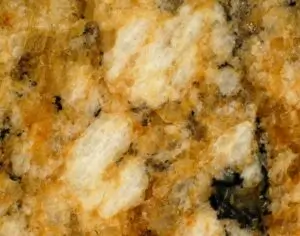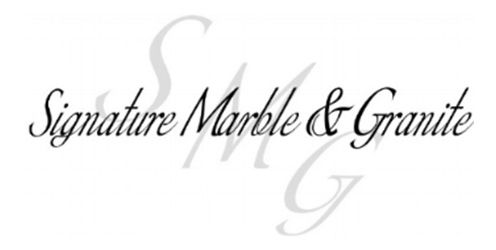How to Remove Stains from Granite Countertops
 Granite is renowned for its natural beauty and unparalleled durability as a kitchen and bathroom countertop material. Formed deep beneath the Earth’s crust, each granite slab boasts a unique blend of colors, patterns, and sparkling minerals for a one-of-a-kind masterpiece.
Granite is renowned for its natural beauty and unparalleled durability as a kitchen and bathroom countertop material. Formed deep beneath the Earth’s crust, each granite slab boasts a unique blend of colors, patterns, and sparkling minerals for a one-of-a-kind masterpiece.
Besides its striking aesthetics, granite offers robust resistance to heat, scratches, and daily wear and tear. However, despite its strength, granite is a porous stone, making it susceptible to staining. But don’t fret! You can learn how to remove stains from granite countertops with the right techniques. After cleaning your countertop and removing the stain, it’s recommended that you occasionally reseal your granite counters to keep your kitchen and bathroom looking their best.
Staining vs. Etching
First, determine whether you’re dealing with a stain or an etch. Oil-based materials, organic products, and ink can all stain granite countertops. Strong chemicals and acidic foods are even worse, causing etching on the stone’s surface. This damage can only be removed by polishing your countertops. But for ordinary stains, the methods outlined below should work to restore your granite counter’s luster.
Remove Oil-Based Stains from Granite Countertops
Oil-based stains from cooking oils or greasy foods seep into the granite’s pores, causing a darkened area. These stains can be tough to remove, but it’s feasible with the right technique. Prepare a baking soda and water paste for lighter-colored granite, or use acetone for darker granite. Apply the product to the stain, cover with plastic wrap, and let it sit for 24 hours. Gently remove the plastic, rinse the area, and pat dry.
Combat Organic Stains on Granite Countertops
Organic stains often originate from bright or dark liquids such as coffee, tea, wine, ketchup, and barbecue sauce. These stains may have a brownish tint and can be removed using 12% hydrogen peroxide and a few drops of ammonia. Apply to the stain, cover with plastic wrap, and let it sit for 24 hours. Then, remove the plastic, rinse with water, and dry the area. Be careful with this method if you have dark granite because the hydrogen peroxide could bleach it.
Tackle Ink Stains on Your Granite Kitchen Counter
Ink stains on granite can be quite prominent. Luckily, they can be removed using hydrogen peroxide (best for lighter stone) or lacquer thinner (best for darker stone). Apply your chosen solvent to a cloth and gently blot the stain. Avoid wiping, as it may spread the ink. Then, rinse and dry the area thoroughly.
Seal Regularly to Protect Your Granite Countertops
To preserve your granite countertop’s beauty and prevent stains, seal it regularly. A high-quality granite sealer provides a protective layer, giving you more time to clean spills before they seep into the stone’s pores.
Install Granite Countertops in Northern Utah
If you’re interested in adding granite counters to your kitchen or bathroom, Signature Marble and Granite has you covered. We offer a wide selection of stunning granite countertops and backsplashes that would look gorgeous in your Northern Utah home. To explore the timeless elegance of granite counters, please browse our gallery. Then request a free estimate for granite countertop installation in Utah County, Salt Lake County, Davis County, Summit County, or Weber County.
